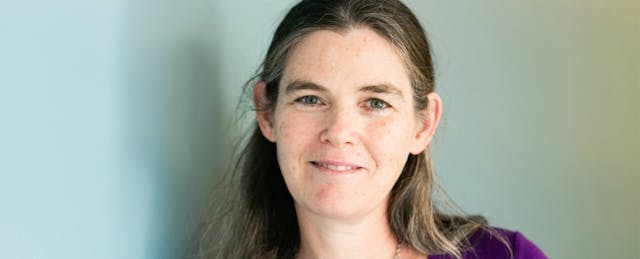Coursera co-founder Daphne Koller has ridden the MOOC craze as the company’s CEO and later president. Now Koller is returning to her background in machine-learning research. Yesterday, Koller announced she’s leaving the company to join Calico, a Google-funded research and development company that focuses on slowing aging and counteracting age‑related diseases.
“It is time for me to turn to another critical challenge—the development of machine learning and its application to improving human health,” Koller wrote in an Aug. 17 blog post. “This field has been a passion of mine since 2001, when I first started working on it at Stanford.”
At Calico, Koller will serve as the company’s chief computing officer, leading teams developing new computational methods for analyzing biological data sets.
Koller co-founded Coursera with machine-learning expert and fellow Stanford professor Andrew Ng in 2012. The company grew—in Ng’s words—“faster than Facebook,” reaching 1.7 million users in less than a year and leading some to proclaim 2012 “the year of the MOOC.” MOOC providers claimed they were democratizing education by increasing access and affordability high-quality courses taught at schools like Harvard and MIT.
A string of awards recognized Koller for her work in online education: She was named one of Fast Company’s Most Creative People in 2014, Time Magazine’s 100 Most Influential People for 2012; and Newsweek’s 10 Most Important People in 2010.
Koller also saw Coursera through a period of disenchantment with MOOCs. Following initial hype, MOOCs fell under criticism for single-digit retention rates and more students who were white, male Americans with bachelor’s degrees and full-time jobs than villagers with no other access to higher education.
Still, Coursera remains a major player in the MOOC space and currently offers more than 1,300 courses to more than 20 million registered users. The platform’s offerings now include “specializations” (a series of three to 10 courses in fields like data science), and the ability to add 1:1 mentorship options to courses. It also recently launched “Coursera for Refugees” in partnership with the U.S. Department of State to let refugees access the company’s library of online certificate programs, such as an “English for Business” from the University of Pennsylvania.
Koller will remain involved with Coursera as co-chair of the board, sharing the role with Ng, who’s now chief scientist at Baidu Research.
“Our strong foundation and our rapid growth have made it possible for both of our co-founders, who are among the world’s leading experts in machine learning, to step back from their day-to-day responsibilities at Coursera and apply their exceptional talent to other major problems facing our society,” Coursera CEO Rick Levin tells EdSurge in an email.
Koller isn’t the only MOOC platform leader to go back to her field of expertise. Former Udacity CEO Sebastian Thrun, who spearheaded Google’s self-driving car program, is rumored to be president of a flying-car startup.
Other education heavyweights have also made a recent shift to healthcare: former New York City Schools Chancellor Joel Klein joined “hip” health insurance provider Oscar Health in January, and Houston Independent School District Superintendent Terry Grier became executive director of the Sonima Health and Wellness Foundation in March.


